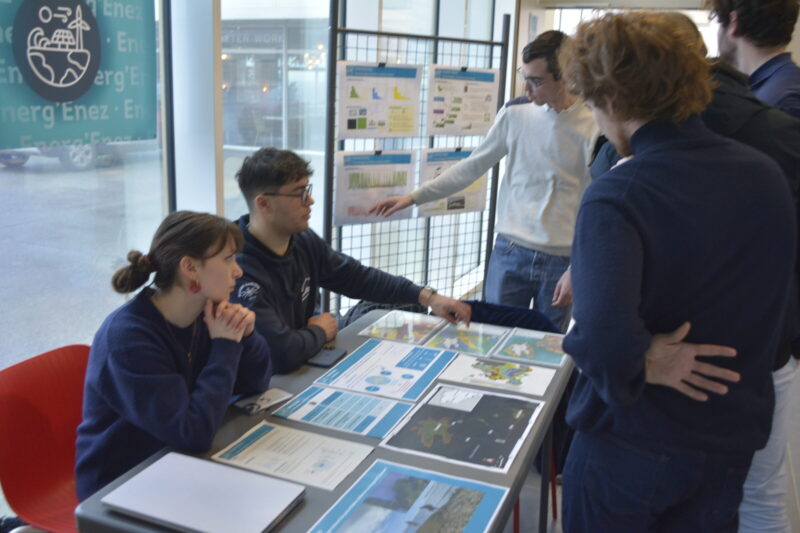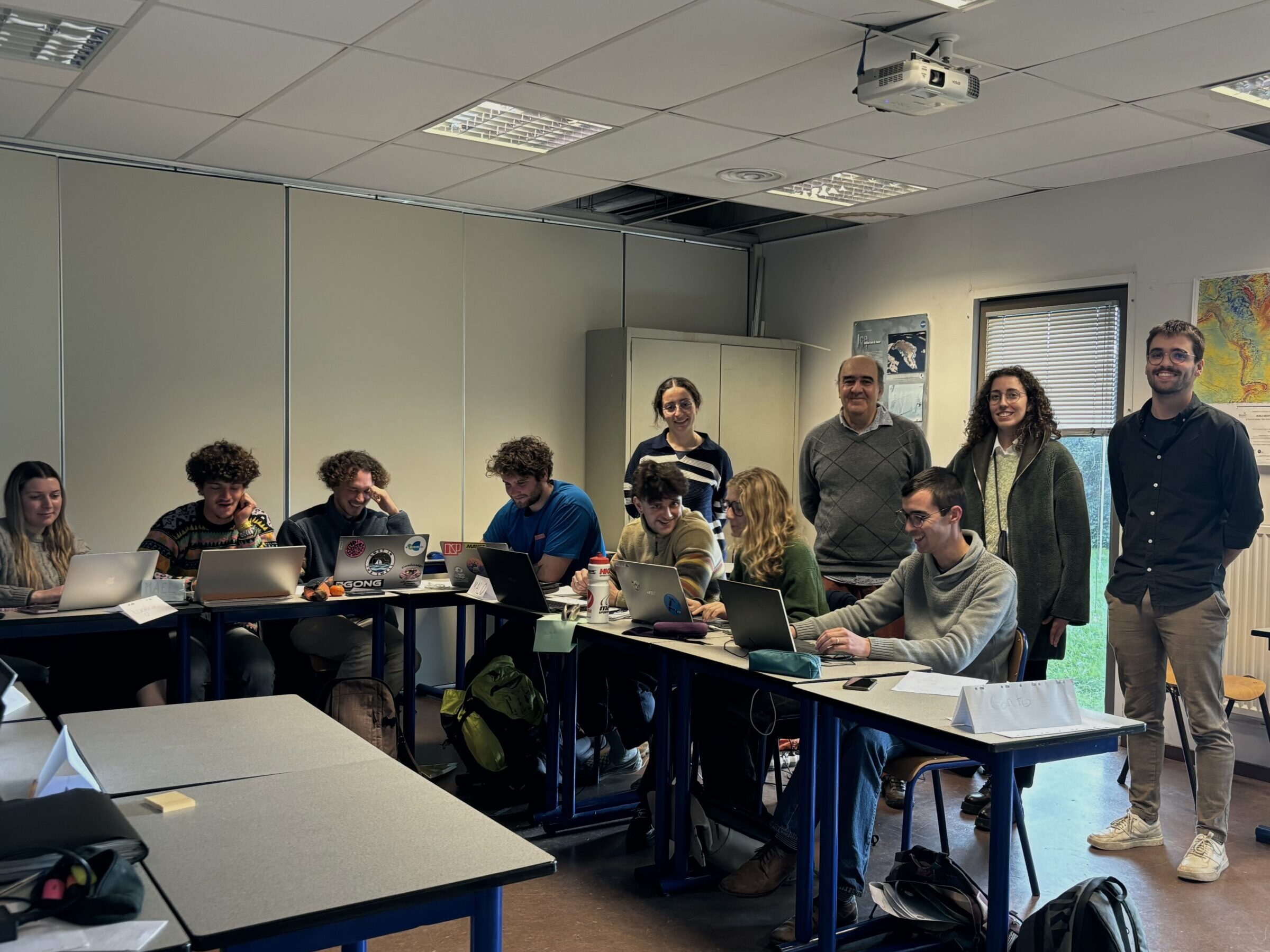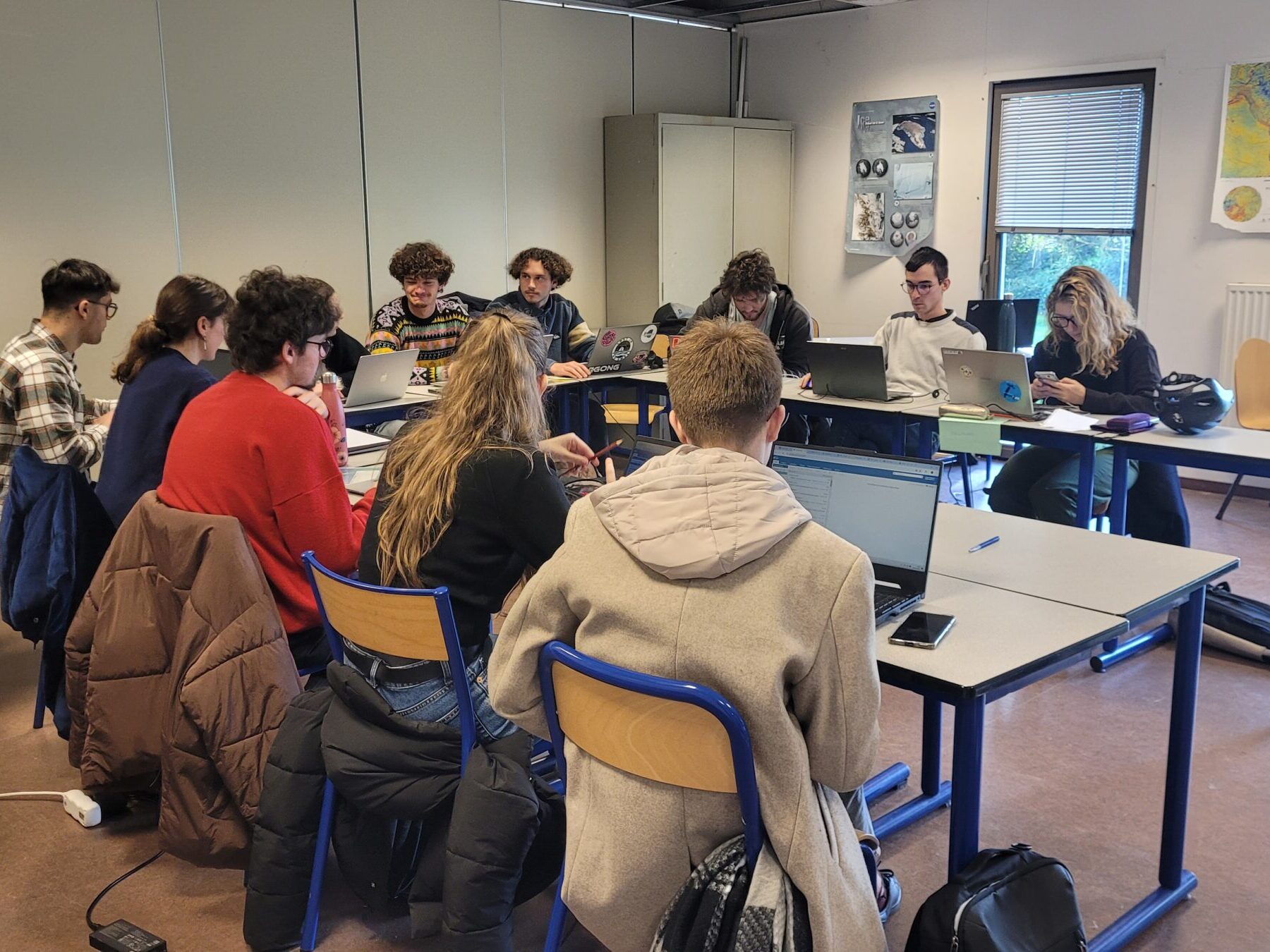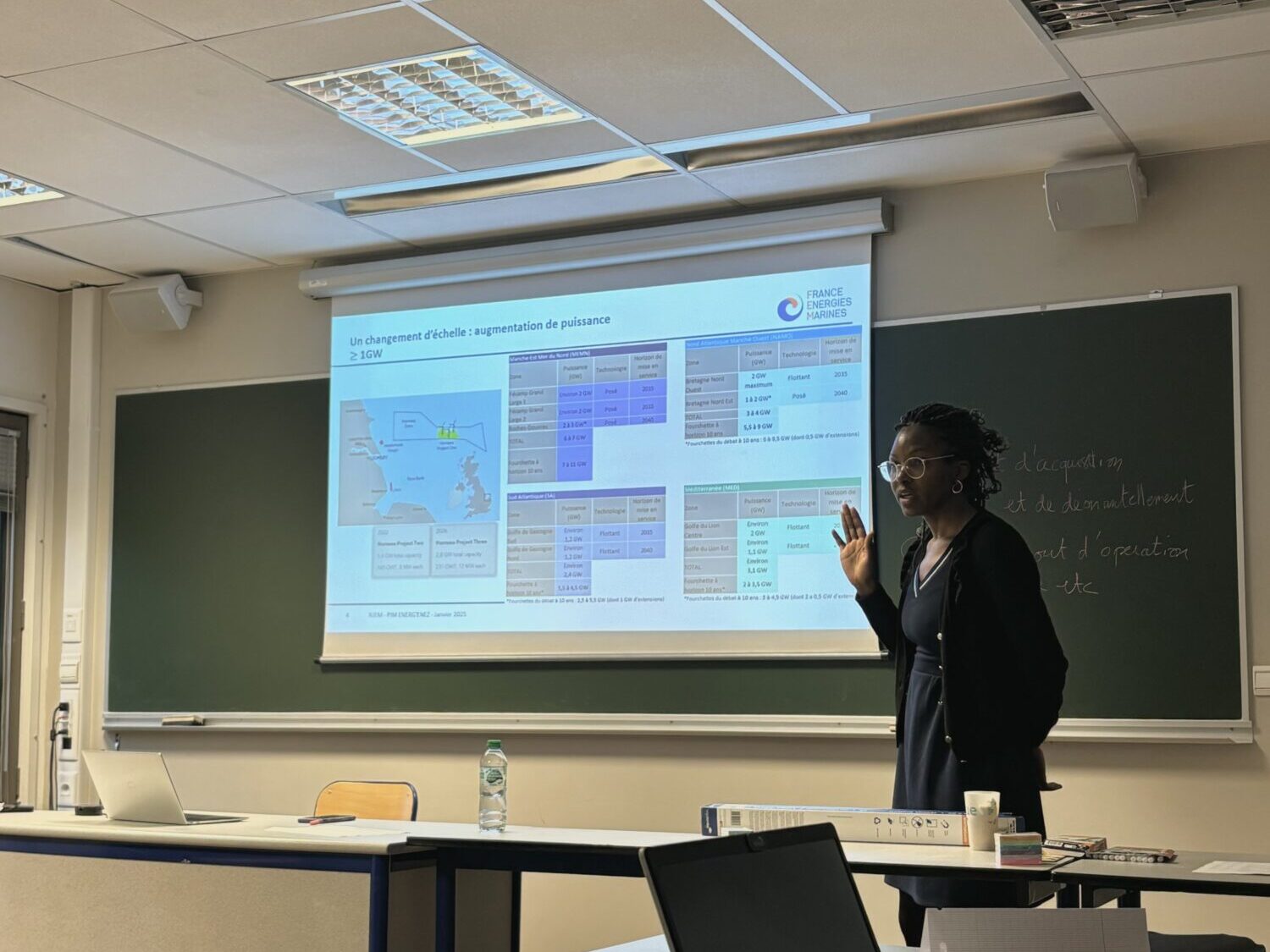ENERG’ENEZ PIM: Designing Energy Independence Scenarios for the Island of Ouessant

From 6 to 10 January 2025, twelve students took part in the ENERG’ENEZ PIM at the European Institute for Marine Studies (IUEM). Supervised by Jean-Frédéric Charpentier (École Navale) and Feriel Abderrahmane (IRENAV/ESTIA-R), the workshop focused on imagining and analysing possible pathways toward electricity self-sufficiency for the island of Ouessant by 2030, taking into account economic, social, and environmental factors.
Ouessant Island currently relies on diesel to produce its electricity, but aims to transition to 100% renewable energy. This ambitious goal raises key questions:
- What is the optimal energy mix between wind, solar, and tidal power?
- Which storage solutions (hydrogen, batteries, or others) are most suitable?
- How can these changes be implemented while ensuring local support and minimising disruption to residents’ daily lives (transport, communications, etc.)?



To address these challenges, students benefited from the expertise of several researchers and professionals:
- Youcef Belkhier (IRDL)
- Christophe Claramunt (École Navale)
- Nicolas Boillet (AMURE)
- Rhoda Fofack-Garcia (France Énergie Marine).
These experts provided essential scientific and technical insights to guide the participants’ analyses and proposals.
The workshop unfolded in several stages:
- Functional analysis: identifying the island’s specific energy needs and understanding its technical and environmental constraints
- Techno-economic analysis: assessing the costs, feasibility, and impacts of different technologies
- Scenario design: developing energy independence scenarios integrating production, storage, and distribution
- Final pitch preparation: summarising the group’s findings and presenting proposals to a panel of specialists
Working in small teams, students developed several energy autonomy scenarios for Ouessant, which they presented during a final pitch and at the 2025 PIM Forum.
Discover the posters created by the ENERG’ENEZ PIM participants!
This workshop helped students strengthen their analytical, methodological, and communication skills while deepening their understanding of the complex challenges of the energy transition. Beyond the technical aspects, they learned to adopt a systemic approach, integrating environmental and societal dimensions into their work.
Watch the students’ interview from the PIM Forum:
Supervisors:
Jean-Frédéric Charpentier (École Navale)
Feriel Abderrahmane (IRENAV/ESTIA-R)
 Attention, vous utilisez un navigateur peu sûr !
Attention, vous utilisez un navigateur peu sûr !